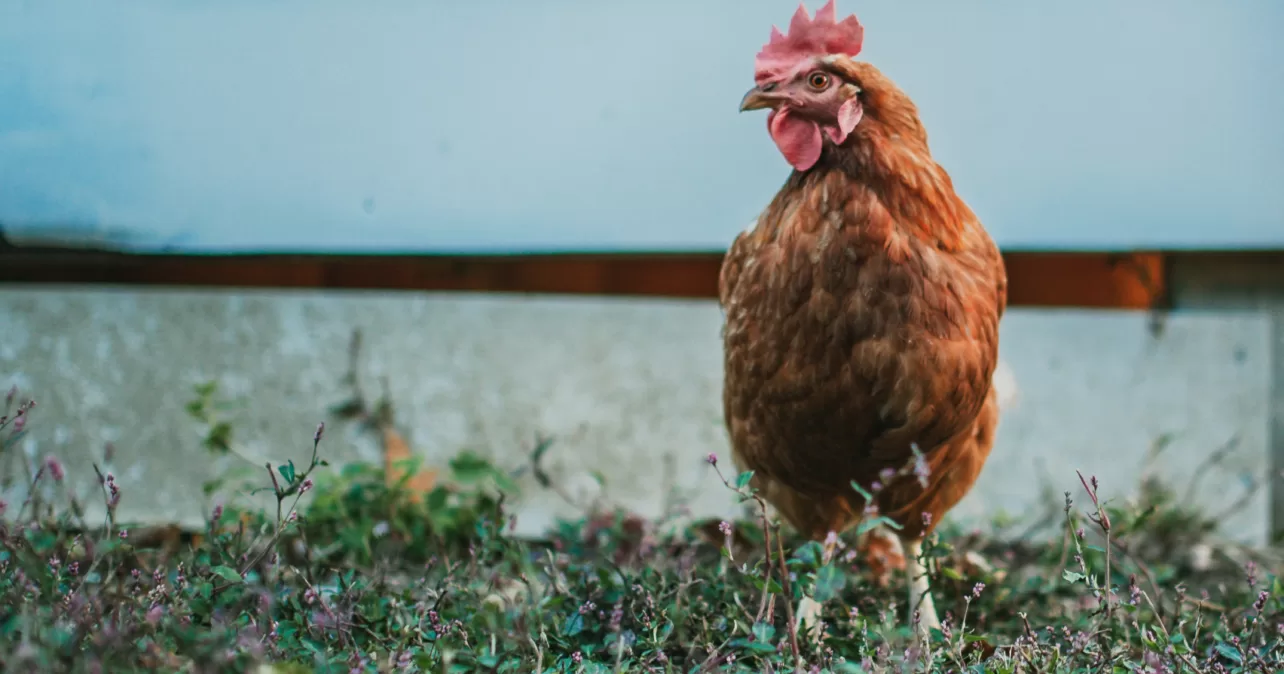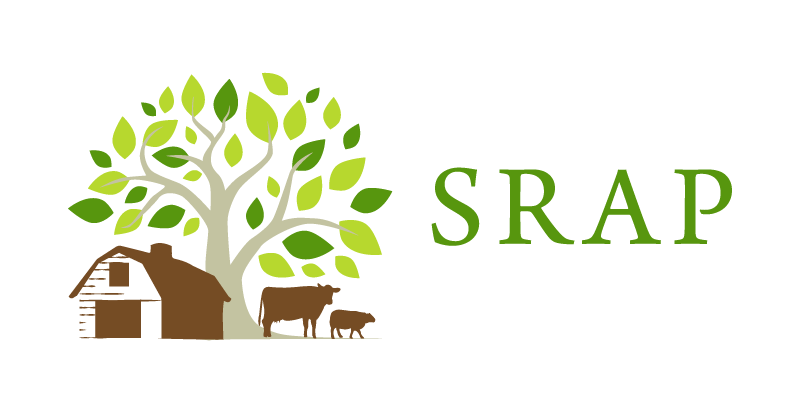Share
Leadership Letter
Last year corporations gamed the system to build their strength through harmful consolidation and then used that power to push back on our ever-growing movement to build an equitable food system. These obstacles only strengthened SRAP’s resolve to see a world where independent farmers and rural communities thrive. Our 2022 report shows SRAP’s many successes in 2022 as we continue to build momentum in 2023.
We are extremely proud of the internal organizational development we have accomplished to ensure that SRAP is better able to serve diverse impacted communities. We have taken the time needed to truly transform the organization over recent years. We have instituted dozens of new protocols and practices that make us more efficient, adaptable, and effective. We have also scaled up our staffing to meet the growing needs of impacted communities. Our new staff members bring geographic information systems (GIS) and mapping capabilities, improved legal capacity, and new energy and leadership to every department.
We are continuously building external relationships and thinking through how best we can reach and engage impacted rural residents. Moving forward, we aim to direct particular attention to how we can better serve communities of color and low-income communities, collaborating with these communities to prevent factory farms from expanding, while holding existing facilities accountable. We remain eager to provide communities, movement leaders, coalitions, and allied organizations with the tools, research, and data necessary to amplify unified campaigns and narratives.
We at SRAP are proud of the work we have done, both internally and externally, to build upon the unique combination of relationships, experience, and credibility the organization has developed throughout its history. Thanks in large part to your support, we believe we are stronger than ever as an organization and well-positioned to continue with this important movement-building work.

Mission, Vision, Values, Outcomes
MISSION
Through education, advocacy, and organizing, SRAP collaborates with communities to protect public health, environmental quality, and local economies from the damaging impacts of industrial livestock production and to advocate for a socially responsible food future.
VISION
Supported by SRAP, communities across the U.S. are able to replace industrial livestock production with ecologically sound, socially equitable, and economically viable animal agriculture.
VALUES
Socially responsible agriculture can rebuild critically needed topsoil, reduce water and air pollution, strengthen rural economies, and support human health and food security, all while providing climate resiliency. With socially responsible agriculture, we all thrive.
On the other hand, with industrial livestock production comes injustice … to the environment, to people, to animals, and to the planet. Today’s consolidated food and agriculture system drives independent family farmers off the land, abuses food system workers, perpetuates social and racial injustices, pollutes our air and water, exacerbates climate change, compromises animal welfare, extracts wealth from rural communities, and damages public health. In short, it harms every aspect of life.
SRAP provides free assistance to communities threatened by industrial livestock production facilities. Our commitment to diversity, equity, and inclusion is reflected in the communities we serve, many of which face social, economic, and racial injustices. We value individuality and lean on unique and varied perspectives to collaborate with communities to stand up to the abuses of factory farms while advocating for a socially responsible food future.
OUTCOMES
The outcomes by which we measure the success of all our programs are threefold:
- Fenceline communities are successful in preventing industrial livestock production from expanding, while holding existing facilities accountable;
- Communities, movement leaders, allied organizations, and SRAP have the tools, research, and data necessary to amplify unified campaigns and narratives;
- Impacted communities are connected with state and national coalitions to collectively advocate for a socially responsible animal agriculture system.
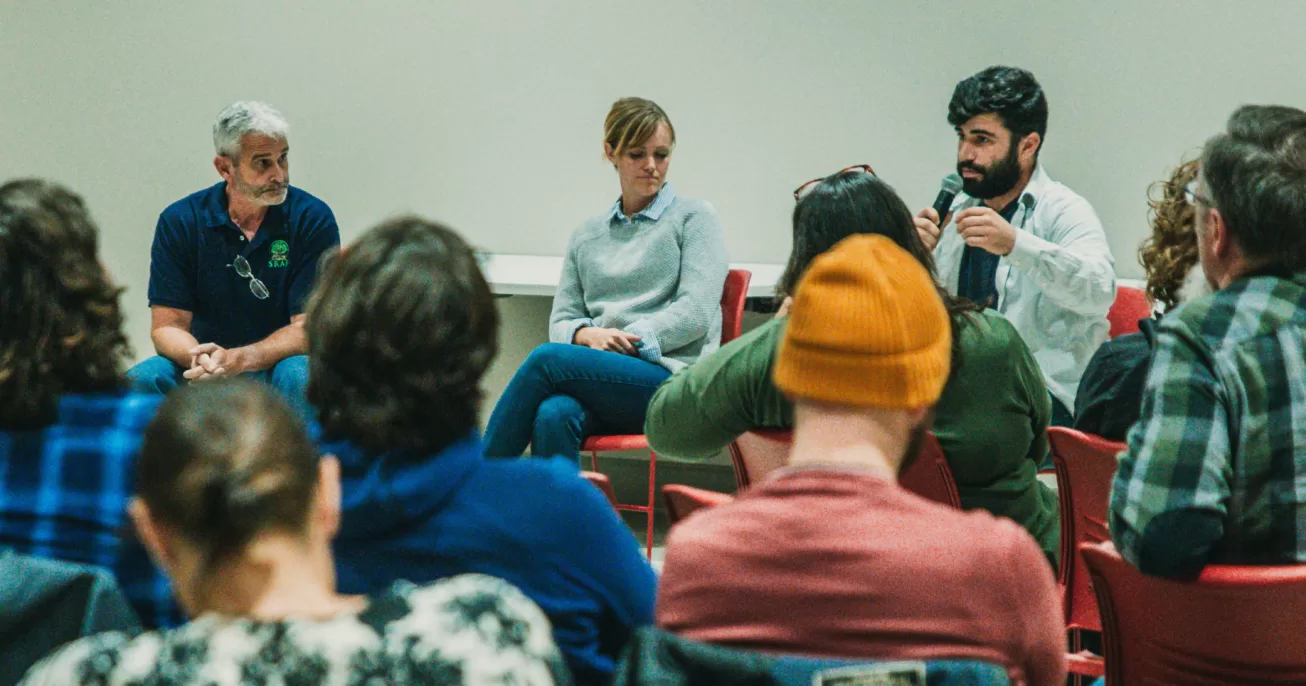
Organizational Highlights
For more than 20 years, SRAP has served as a mobilizing force to assist communities in protecting themselves from the damages caused by industrial livestock operations and advocating for a food system built on regenerative practices, justice, democracy, and resilience. Our team includes technical experts, independent family farmers, and rural residents who have faced the direct threats of factory farms in their communities.
SRAP is the only organization that works throughout the U.S. to provide direct support to fenceline communities facing the devastating environmental, human health, and socioeconomic impacts of industrial livestock operations. The organization has a unique vantage point in that it engages impacted communities at the local level but does so nationwide. This provides not only direct insight into the realities of what is happening on the ground in rural communities, but also how these conditions fit into nationwide patterns, needs, and overarching public policy initiatives.
Early on in 2022, the organization established five goals: increasing engagement through our Community Support, Water Rangers, and Contract Grower Transition programs; writing and implementing a three-year strategic plan; building stronger partnerships with ally organizations, community groups, and coalitions; increasing our impact on community efforts by producing and distributing new resources; and diversifying our funding. We achieved these goals and more.
Programmatic Accomplishments
SRAP ended the year still working on 110 active cases through the Community Support Program. While not every case was won, we did see many successes in the communities where we worked, including big wins in Maryland, Wisconsin, Iowa, Indiana, Minnesota, and more. Our successes have included stopping new facilities from being built and fending off future factory farm development; working with communities to ensure effective enforcement of environmental laws; and helping local governments craft and enact ordinances to protect the environment and public health. While our victories vary in scope and degree, a critical element of SRAP’s success lies in our capacity to show rural residents their collective power to effect change, and in doing so, fostering ongoing engagement in shaping the future of their communities

SRAP submitted a complaint, written by SRAP Senior Counsel Eli Holmes, against the Delaware Department of Natural Resources and Environmental Control (“DNREC”) and Sussex County Delaware for violations of Title VI of the Civil Rights Act of 1964 and the U.S. Environmental Protection Agency’s implementing regulations. Sussex Health and Environmental Network, the American Civil Liberties Union of Delaware, the Delaware Poor People’s Campaign, and the Delaware State Conference of Branches of the National Association for the Advancement of Colored People all signed onto the complaint. We requested that the EPA investigate whether Sussex County and DNREC were in compliance with Title VI based on the discriminatory effects of their actions related to their acceptance and review of applications for a county land use permit (Sussex County) and state environmental permits (DNREC) from Bioenergy Development Company (BDC), which proposes to construct and operate a methane gas production plant and refinery, and significantly expand a compost operation at the Bioenergy Innovation Center in Seaford, Sussex County, Delaware. The BDC proposal would occur in the heart of residential- agricultural neighborhoods, where a significant number of persons of color live, are of Limited English Proficiency (LEP), are low-income, suffer from health disparities and environmental impacts from existing pollution, and have limited technology access to find information about the project and to exercise their rights of public participation. We await a response to our request.
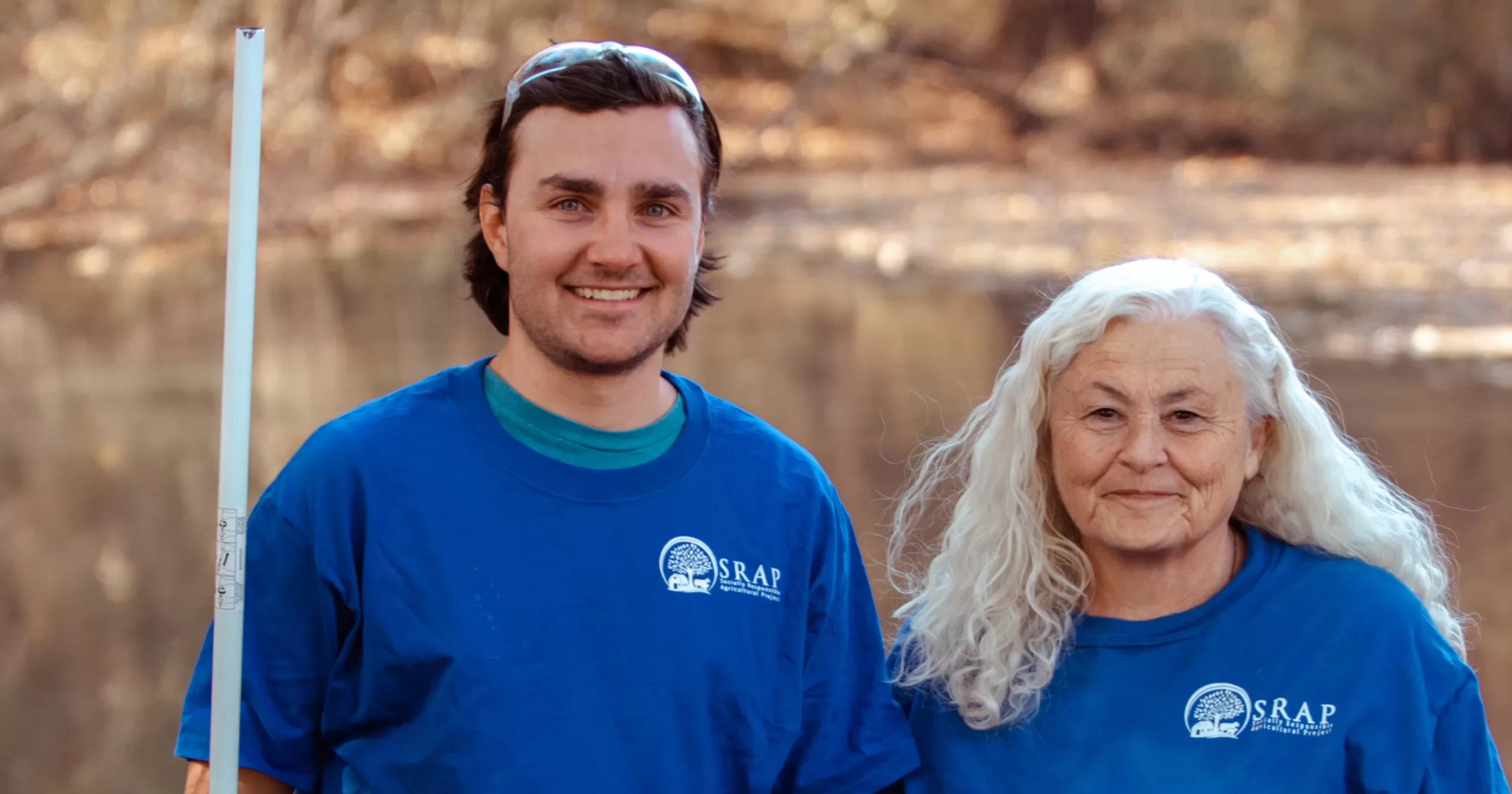
Through the Water Rangers Program, SRAP collaborates with communities to hold corporations accountable for water pollution by training rural residents in EPA-approved water testing techniques, providing tools to collect and analyze water samples, and offering instruction on documenting and reporting pollution violations to regulators. In 2022, we began expansion of the program in Illinois, Indiana, Michigan, Ohio, and Wisconsin, and Native Nations within these states. We hired new staff, created outreach and training materials, and built capacity so that we can offer Water Rangers training to every CAFO-related community help request we receive in these states.
SRAP supports contract growers in transitioning to sustainable, equitable, and profitable operations and careers through its Contract Grower Transition Program. In 2022, we completed exploratory research to assess the challenges contract growers face and to identify what organizations, tools, resources, opportunities, and support might be most valuable to help them transition away from industrial agriculture. SRAP also hosted a series of Facebook Live conversations with the three former contract growers who now serve on our staff. The series reached more than 18,000 people on Facebook and received more than 1,500 views. Beyond these events, we have established a Contract Grower Advisory Group, with whom we are conducting regular meetings to discuss the changing needs of contract growers and the best path forward for our transition program. Lastly, SRAP was accepted into a cohort with American Geophysical Union’s Thriving Earth Exchange program to advance research that supports SRAP’s newly launched program, and we received additional funding to embark on a national outreach campaign to reach producers before they enter the industrial system.
Through our Food & Farm Network, we continued to explore ways to strategically support community leaders and facilitate coalition building throughout the U.S., and we finalized a policy engagement toolkit and accompanying training modules, which will be made available to every community group we reach through SRAP’s programming.
SRAP served as lead amicus on a brief to the U.S. Supreme Court to support California’s efforts to uphold Prop 12, the Farm Animal Confinement Initiative (Prevention of Cruelty to Farm Animals Act). The brief demonstrated how independent and sustainable U.S. farmers will benefit from Prop 12. Seventeen other farm-based organizations signed onto the brief. Oral arguments for this case were heard in October 2022, and we await the court’s decision.
Research & Resources
In 2022, SRAP continued to provide research and education to community groups and partner organizations through FOIA trainings, webinars, social media events, and various research projects. Other research and resource efforts included:
GIS/MAPPING PROJECTS
SRAP developed a GIS mapping tool in partnership with Eastern Washington University to incorporate data from disparate government maps and databases (e.g., demographic data, agricultural statistics, locations of impaired waterways, schools, private residences, etc.) to serve as a one-stop mapping website for impacted communities. We also created an interactive map as a companion piece to the Smithfield Rap Sheet report. Using previously unpublished data from the Wisconsin DNR, SRAP created a map that shows the locations of CAFOs and boundaries of their waste-application fields, along with impaired waterways and soil characteristics throughout the
state. Communities and regulators can use the map to assess the potential surface water pollution threats posed by proposed or existing CAFOs.
RAP SHEET
SRAP completed The Rap Sheet on Smithfield’s Industrial Hog Facilities in Missouri, which exposes Smithfield’s history as a chronic polluter and the ongoing failure of the Missouri Department of Natural Resources (DNR) to enforce regulations designed to protect public health and the environment. SRAP’s analysis of more than 100,000 pages of DNR records spanning three decades revealed that Smithfield’s 21 Missouri CAFOs caused 748 reported spills with a staggering estimated volume of more than 7.3 million gallons of waste. Under Smithfield’s ownership, these CAFOs spilled an average of 300,000 gallons of waste annually, or roughly 34 gallons of waste per hour for 15 years. During this time, DNR responded onsite to just 31 percent of all reported spills.
While short-term publicity was not our primary objective for producing the Rap Sheet, the report was well-received. Through networking, social media marketing, and media outreach, SRAP was able to get the Rap Sheet in the social feeds of upwards of 1 million people. The report was shared by more than 50 organizations, politicians, industry thought leaders, and social media influencers working in the food and ag space.
In addition to being covered by Reuters, the Rap Sheet also received media from publications including One Green Planet, Sentient Media, and Harvest Public Media, NPR’s KCUR station in Kansas City, among others.
By the Numbers
57—VIRTUAL AND IN-PERSON COMMUNITY MEETINGS
20—PUBLIC COMMENT PERIODS ENGAGED IN
110—COMMUNITIES PARTNERED WITH ACROSS THE COUNTRY
28—TOTAL STATES WORKED IN DURING 2022
52—NUMBER OF TIMES SRAP AND/OR SRAP STAFF WERE FEATURED IN THE MEDIA
400K—PEOPLE REACHED THROUGH SOCIAL MEDIA
Board of Directors and Staff

BOARD OF DIRECTORS
- Jessica Culpepper, Chair
- Robert Lawrence, MD, Secretary
- Monica Richardson Brooks, Treasurer
- Mike Callicrate
- Kim Ferraro
- Austin Frerick
- Don Stull
STAFF
- Sherri Dugger, Executive Director
- Chris Hunt, Deputy Director
- Ashlen Busick, Food & Farm Network Manager
- Rachel Casteel, Regional Representative
- Susie Crutchfield, Regional Representative, Contract Grower Transition
- Michael Diaz, Regional Representative, Contract Grower Transition
- Cole Dickerson, Water Rangers Coordinator
- Scott Dye, Research & Reports Specialist
- Maegan Eichinger, Communications Associate
- Tina Empey, Community Support Program Director
- Katie Engelman, Operations and Human Resources Director
- Lynn Henning, Water Rangers Program Director
- Eli Holmes, Senior Counsel
- Donald Hutchinson, GIS, Research & Resources Specialist
- Teresa Mitchell Clausen, Regional Representative
- Maria Payan, Senior Regional Representative
- Michael Payan, Regional Representative
- Eric Stack, Development Manager
- Mercedes Taylor-Puckett, Finance Specialist
- Craig Watts, Contract Grower Transition Program Director
- Julie Wilson, Communications Manager
PROFESSIONAL & TEAM DEVELOPMENT
In 2022, our staff and board worked with several consultants for individual and team growth, and throughout the year we focused on building diversity, equity, and inclusion (DEI) within our organization and throughout our community efforts. As part of our three-year strategic plan, we intend to expand the number and demographics of the communities we support, and we will work to more clearly understand the communities that SRAP serves, developing new outreach materials to increase our visibility to diverse communities and connecting with new and diverse technical experts who can help SRAP better serve these communities.
Financials
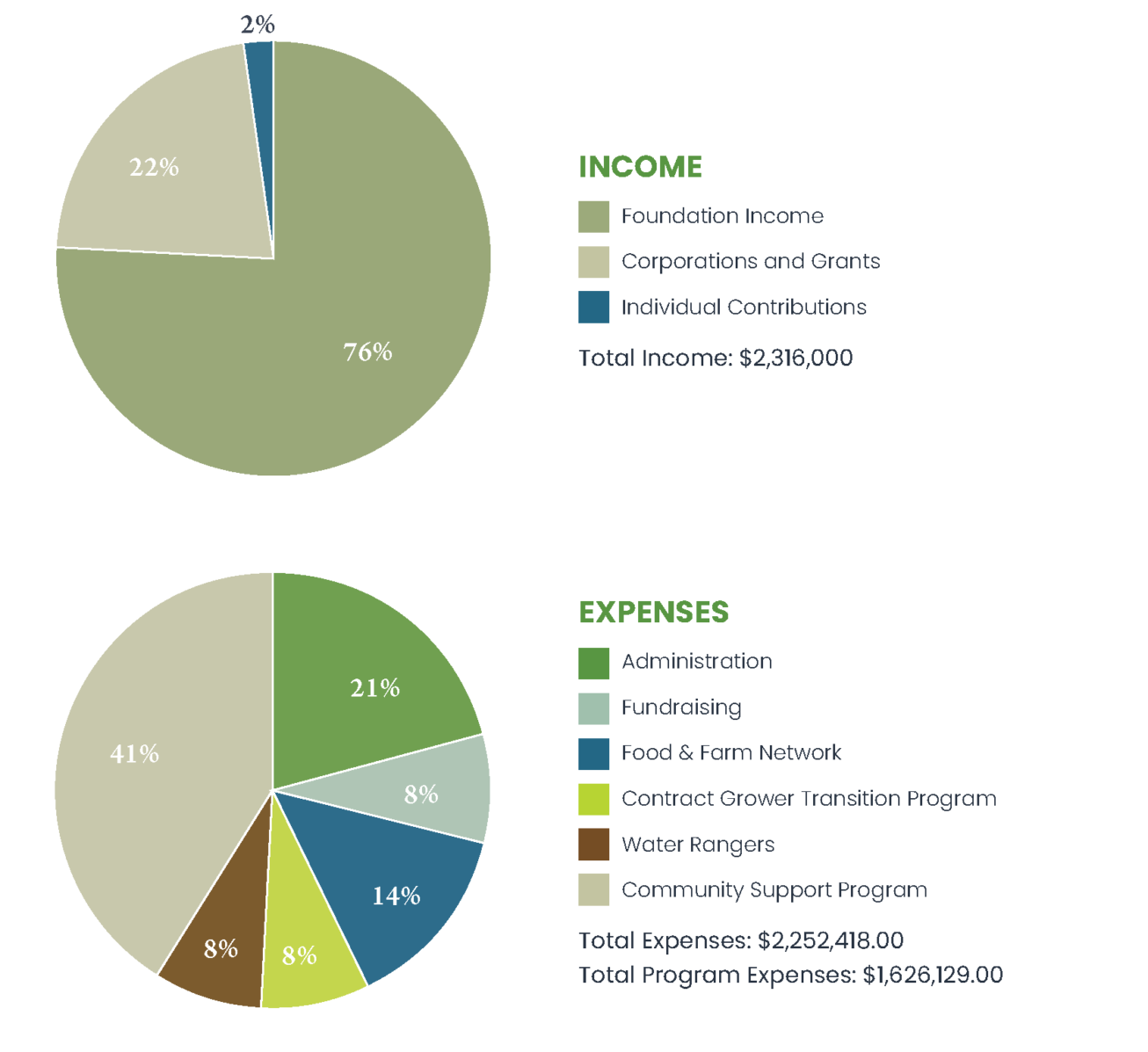
For more than 20 years, SRAP has served as a mobilizing force to help communities protect themselves from the damages caused by industrial livestock operations and to advocate for a food system built on regenerative practices, justice, democracy, and resilience.

